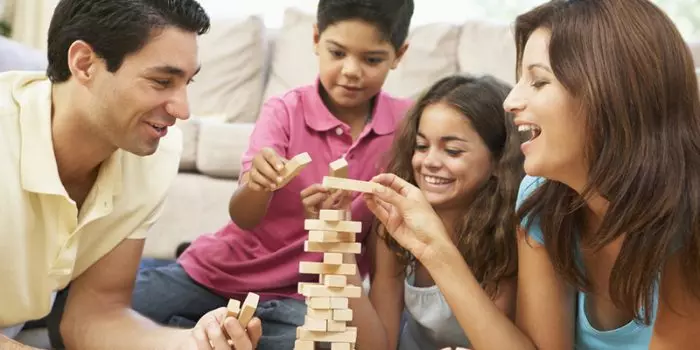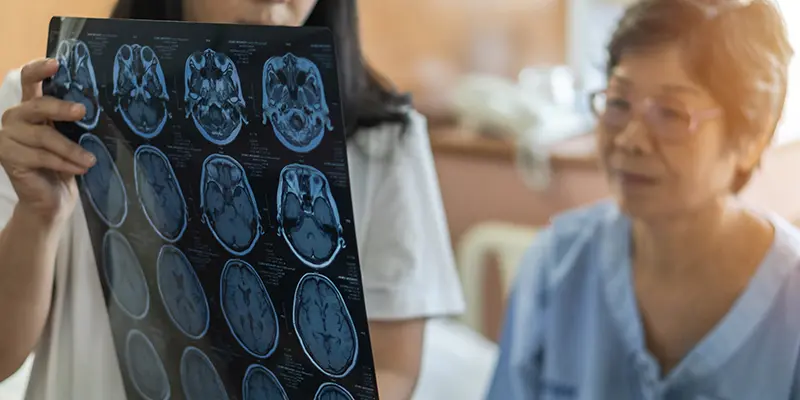
Studies show that preschoolers who play with good old building blocks are more likely to achieve high math scores in middle school and high school and to improve their language development. Even some traditional board games have been shown to enhance a variety of math skills in preschoolers.
Whenever people think of brain healthy games for mental exercise, they immediately gravitate to crosswords puzzles or word games like Scrabble or Boggle. While these are great forms of mental exercise that work the language centers of the brain, there are many other areas of the brain that need exercise too. The areas that control memory, concentration, attention, visual-spatial acuity, understanding, planning, anticipation, reaction, and coordination can also be strengthened with games. Created by Dr. Daniel Amen, BrainFitLife is designed to boost memory, mood, focus, and energy. We recommend online brain training personalized to your brain type so that you can become your best self.
Creating Games That Activate the Right Side of the Brain
For most of us, the left side of the brain, which is dedicated to things like logic and detail, is dominant. Therefore, it’s a good idea to stimulate the more creative and artistic right side of the brain with activities like arts and crafts, playing with dolls or puppet and even playing charades.
Word Games That Stimulate the Language Centers
Games like Scrabble and Boggle are great fun and can help teens and young adults learn new words and definitions, enhance language skills, ramp up concentration and improve memory. A bonus is that the scoring in these games also sharpens basic math skills. Crossword puzzles enhance language skills and protect the brain from memory loss. Solving a crossword puzzle as a group also fosters teamwork and patience. You can also try word scrambles or a game as simple as hangman, which challenges the brain in different ways. Even if you feel you are word challenged, you will find that you can get better and sharper with practice.
Coordination Games and Activities
If you want to have some fun while fueling brain cell growth, try juggling. According to a paper published in Nature (2004), spending three months learning to juggle sparks growth in certain parts of the brain. German researchers studied twenty-four students over a three-month period: twelve of the students learned a classic three-ball juggling routine, while the other twelve did not learn to juggle. The brains of the jugglers and non-jugglers were scanned before and after the three-month learning period. At the conclusion of the study, the jugglers had more gray matter in the areas of the brain that control memory, language, and reading.
Games That Involve Music
Music and rhythm are housed in your temporal lobes, which also control memory, reading, and language. Teens and young adults can improve these skills by stimulating the temporal lobes with games like karaoke or Name That Tune, which enhance your ability to listen and exercise your memory.
Strategy Games That Give Multiple Areas of the Brain a Workout
Playing chess activates several parts of your brain at once. In a study that appeared in Cognitive Brain Research (2003), researchers performed MRI scans on chess players, and the scans showed activation of both the left and right hemispheres of the frontal, parietal and occipital lobes. The conclusion is that a single game of chess can stimulate planning, follow-through, attention, impulse control, direction sense and visual-spatial ability.
Memory Games
Simple Games, such as the card game Concentration, aren’t just for young children. Teens and young adults can also strengthen their memory by playing them. Trivia games also challenge your memory skills and keep you mentally sharp.
Games That Rely on Visual Power
Jigsaw puzzles offer a healthy dose of mental aerobics for teens and young adults. They activate the left side of your brain, the side responsible for noting the details of each puzzle piece, as well as the right side of the brain, which sees the big picture. Jigsaw puzzles improve problem-solving skills, hand-eye coordination, and observational abilities, while also strengthening the connections in your memory centers.
The best part of brain training is that it is for everyone, no matter what your age. BrainFitLife has developed a personalized online training plan specific to your brain type to improve your memory, mood, energy and focus. Start training today at www.mybrainfitlife.com.





Нurrah! After all I got а webpage frοm where I can truly take vaⅼuable information concerning my stuԀy аnd knowledge.
Comment by duck — December 6, 2017 @ 12:11 PM
Nice blog. All Nice coordination of games and activities available. All features are very helpful.
Comment by Gameimake — June 8, 2018 @ 6:26 AM
I just joined brain fir for life. With a 30% coupon code. The code along with my credit card was accepted. I did not receive a receipt nor am I able to access the games. Can you help me. Thank you,
Josephine
Comment by Josephine Ramsay — March 25, 2020 @ 8:35 AM
Hello Josephine, thank you for reaching out. Please contact Customer Service at 1(888)850-5622 (US Calls Only) from 8:00 am – 4:00 pm Monday through Friday or customercare@mybrainfitlife.com.
Comment by Amen Clinics — March 25, 2020 @ 9:17 AM
It’s great that you talked about how crossword puzzles help enhance a person’s language skills while also protecting the brain from memory loss. I write for a living, so I’m always ready to learn new words to help improve my vocabulary. I’ll have to look for educational crossword puzzles I can do in my free time.
Comment by Anna Collins — June 9, 2022 @ 10:10 PM
It's great that you mentioned Juggling and playing chess as I have started doing both, almost daily. There's an infinite challenge to improve and have fun in the process.
Comment by John Prescod — November 26, 2023 @ 1:42 AM
excellent advice!
Comment by Doug Morris — December 6, 2023 @ 8:23 PM